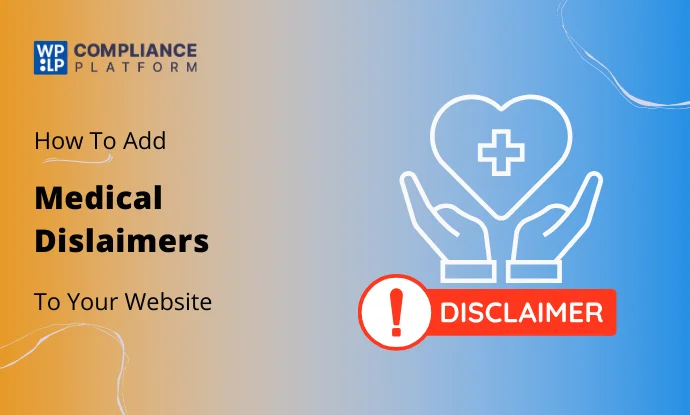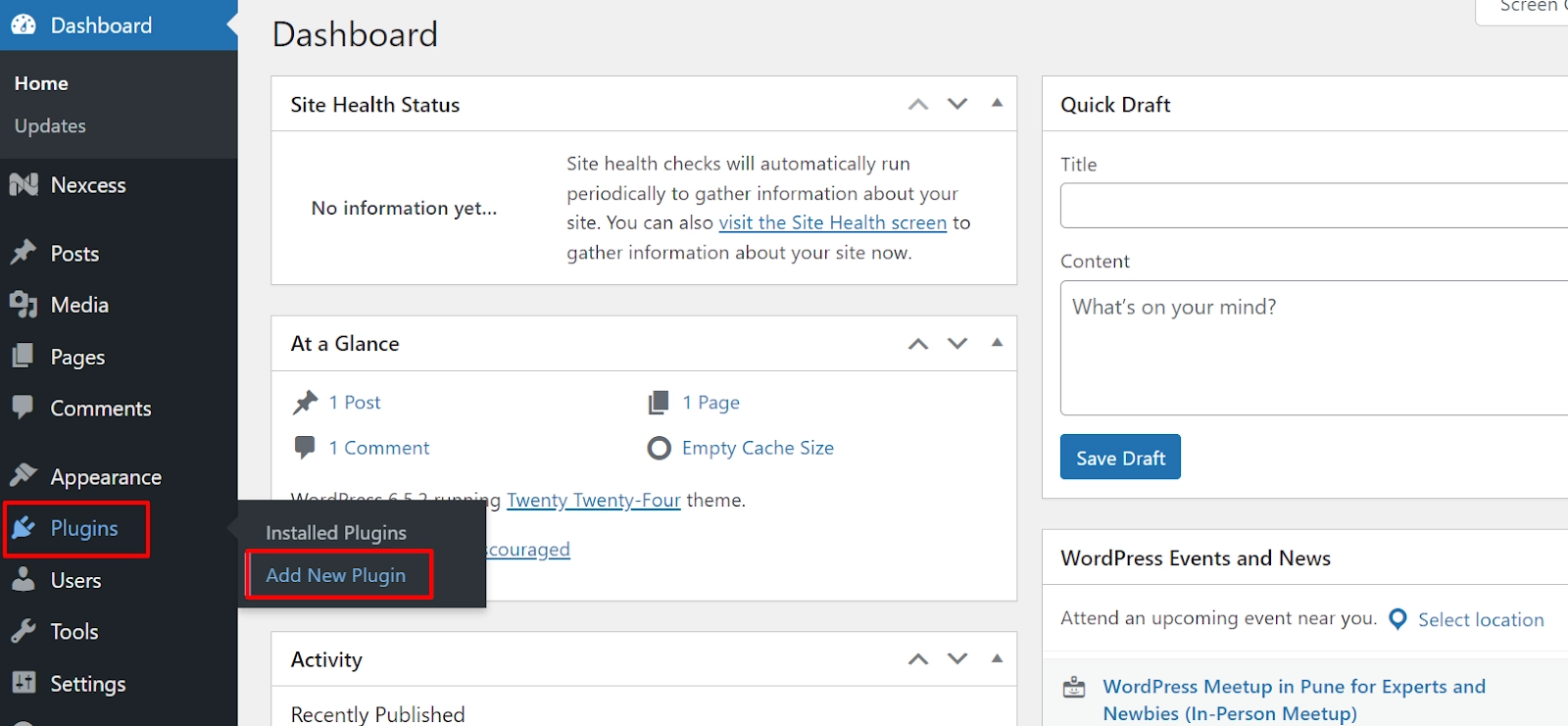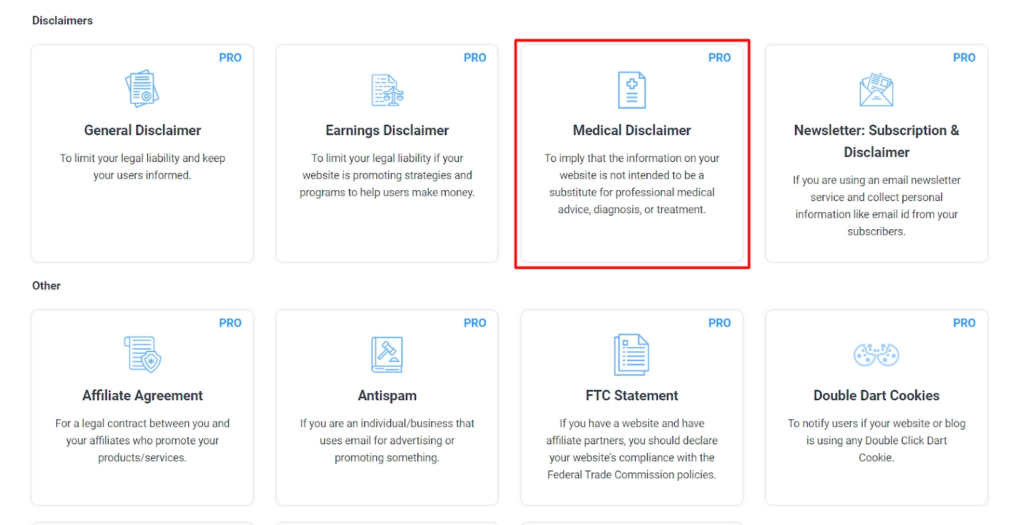What is Medical Disclaimer and How to Create One for Your Website

Are you wondering what is a medical disclaimer and how to create one for your website?
Online businesses in the medical and pharmaceutical sectors must provide accurate information and adhere to strict compliance regulations. The medical disclaimer is a crucial element of this compliance.
They serve as a protective statement that outlines the limitations of a website’s information. They ensure that users understand that the content is not a substitute for professional medical advice, diagnosis, or treatment.
Creating an effective medical disclaimer is not just about legal protection; it’s about promoting responsible communication and safeguarding the well-being of your users.
This article will explore the key components of a medical disclaimer, the importance of tailored disclaimers for your specific audience, and step-by-step guidance on crafting one for your website.
Let’s get started!
What is a Generic Medical Disclaimer?
We’ve all seen the small print offering advice at the bottom of our favorite websites and blogs, but have you ever wondered why it’s there?
Most of the time, the small print at the bottom of websites and blogs is a legal disclaimer template that protects the company and its owner from any legal action.
It may seem silly that someone would sue the owner of a website or blog over free advice given that the reader sought out themselves, but there is a reason behind it because someone somewhere has been sued just for that.
Medical disclaimers are typically created using medical disclaimer templates. The templates are usually part of a medical disclaimer form that includes clauses limiting warranties regarding the advice given and the general information supplied on the site. Other medical disclaimer examples include the advice that an individual should seek professional care and clauses limiting the liability of the website or blog.
Which Sites Need a Medical Website Disclaimer?
Medical disclaimers are the most common for blogs. Articles on medicine, in particular, always require one because the advice may harm the person seeking it.
This is not because the advice is bad but because the person seeking it may be allergic to the medication, apply the wrong dosage, or have various other reasons.
Big, well-known professional medical websites typically develop their sites with medical disclaimers. This is standard practice. However, bloggers should know the importance of a medical disclaimer for their blogs.
Why You Must Have a Medical Disclaimer On Your Website
Having a medical disclaimer on your website is essential for several reasons. First and foremost, it protects you legally. The medical field is fraught with risks; even well-intentioned advice can lead to unintended consequences.
A clear disclaimer informs users that the information provided is not a substitute for professional medical advice, thereby limiting liability.
Secondly, it fosters trust with your audience. By openly stating the limitations of your content, you demonstrate a commitment to responsible communication. This transparency can enhance your credibility, encouraging users to seek professional guidance when needed.
Moreover, a medical disclaimer helps delineate the scope of your content. It clarifies that your website is for informational purposes only, reducing the likelihood of misunderstandings. This is particularly important in the digital age, where misinformation can spread rapidly.
Lastly, many regulatory bodies require medical disclaimers for websites providing health-related content. Compliance with these regulations protects you legally and supports ethical standards in the medical community. In summary, a well-crafted medical disclaimer is vital to any health-related website.
How to Create a Medical Disclaimer for Your Website
Creating legal documents for your website can be challenging and complex. It requires extensive technical knowledge, which might require hiring a legal expert. However, a better and cheaper alternative to hiring an advocate is to use a legal page generator.
One such powerful legal page generator is WP Legal Pages.

WP Legal Pages is a crucial tool for solving these problems and simplifying the creation of a Medical Disclaimer. This WordPress plugin allows you to create various website legal pages quickly and precisely.
Its user-friendly interface offers the perfect option for website owners, especially those in the healthcare and wellness sectors.
Step 1: Install and Activate WP Legal Pages
To install and activate WP Legal Pages, follow these steps:
Navigate to your WordPress dashboard and click on Plugins > Add New Plugin

Search for WPLegalPages in the search bar and click on the Install Now button.

Now, click Activate to start using the plugin.

Step 2: Connecting Your Site
To connect your website to WP Legal Pages, click on WPLegalPages from your dashboard.

Click on the Create Legal Pages button.

The following screen will appear once you click the Create Legal Page button.

Then, choose the Medical Disclaimer template from the list of available templates.

Now a popup will appear, click on New? Create an account.

Fill up your details and click Sign Up & Connect.

Next, click Connect Site.

Step 3: Create Medical Disclaimer
To create a medical disclaimer page on the website, follow the steps below:
After signup, you will be redirected again to select the templates. Select the medical disclaimer template.

Select the Language, fill in your Domain details, and click Next.

Next, click Create and Edit. It will direct you to the newly developed Medical Disclaimer page.

You can modify the Medical Disclaimer page in the editor. Once you have everything in place, click the Publish button.

That’s it. You have created your Medical Disclaimer page in just a few minutes.

FAQ
A medical disclaimer is a statement that informs users that the information on a website is not a substitute for professional medical advice, diagnosis, or treatment. It limits the site’s liability.
A medical disclaimer protects you legally by clarifying that your content is for informational purposes only. It helps manage user expectations and promotes responsible communication about health-related topics.
Any website providing health-related information, including blogs, medical practices, and pharmaceutical sites, should use a medical disclaimer. This is crucial to ensure users understand the limitations of the advice given.
Conclusion
A medical disclaimer is a vital component of any website offering health-related information. It protects you legally by clarifying the limitations of your content and fosters trust and transparency with your audience.
By ensuring users understand that your information is not a substitute for professional medical advice, you promote responsible communication and safeguard their well-being.
Further, if you liked this article, you can also consider reading:
- Best Practices for Implementing a Cookie Consent Solution
- The Benefits of Using a Whitelist Approach for Cookies
- What is a Data Breach and How to Prevent It?
Grab WP Legal Pages today!
